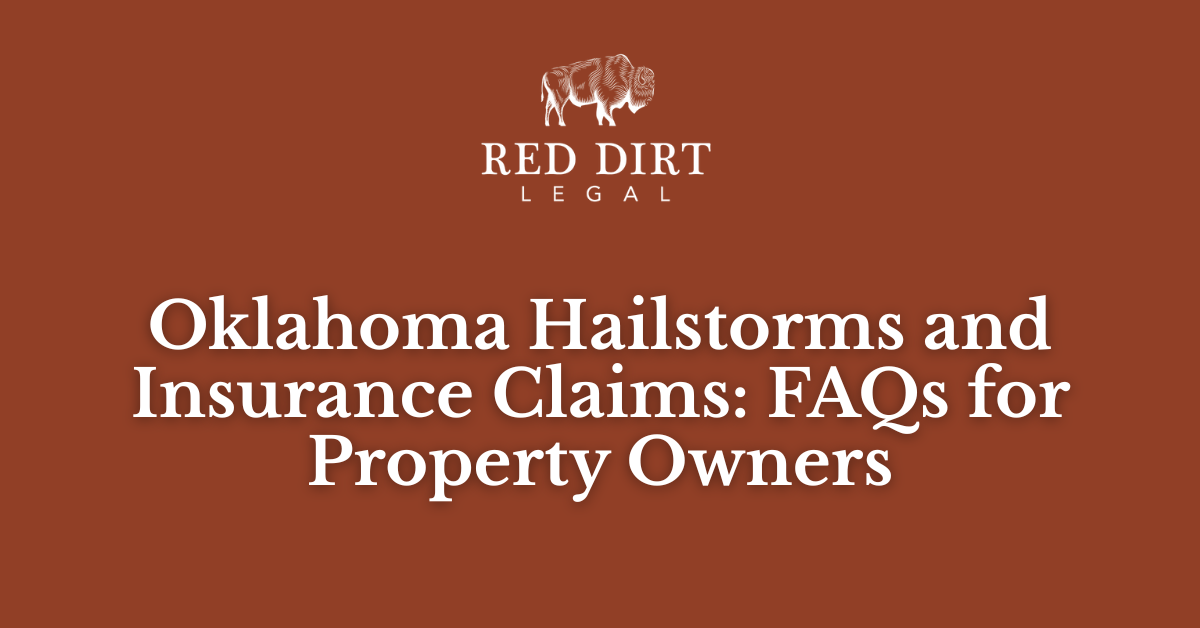In Oklahoma, earthquakes linked to oil and gas activity have damaged homes, businesses, and community infrastructure. For those affected, the legal path to hold companies accountable is now clearer than ever. In a major decision, the Oklahoma Supreme Court ruled that homeowners can sue oil companies for property damage caused by induced seismic activity.
If your property was damaged by an earthquake in Oklahoma and you believe oil or gas operations were to blame, Red Dirt Legal can help. Our team has represented Oklahomans in disputes involving both property damage and insurance companies, and we know how to handle cases involving powerful corporate defendants.
Here’s what you should know about your options and how to take action.
What’s Causing These Earthquakes in Oklahoma?
Unlike California or Alaska, Oklahoma has not historically experienced frequent earthquakes. But in recent years, increased seismic activity has been tied to deep-well wastewater injection, an oil and gas industry process that disposes of drilling byproducts underground.
This process can shift fault lines, triggering earthquakes near areas of injection. When that happens, homes and buildings may suffer structural damage that wasn’t covered, or expected, when they were built.
Step 1: Gather Evidence of Damage
Start by documenting everything. Photos and videos of visible damage are essential, especially for areas like:
- Cracks in drywall, bricks, or foundations
- Buckled flooring or roof damage
- Plumbing or electrical system issues
- Tilting or shifting structures
Keeping receipts, repair estimates, and any communication with your insurance provider can also be useful if your case proceeds to court.
Step 2: File an Insurance Claim
Most homeowners begin by filing a claim with their insurer. But when it comes to earthquake damage, coverage isn’t always straightforward. If your insurer denies the claim outright, offers a partial payment, or drags their feet, you may be dealing with a deeper issue.
Some insurance companies act in bad faith by failing to properly investigate or fairly evaluate legitimate claims. If this happens, speaking with an experienced attorney can help you understand your rights and your next steps.
Step 3: Identify the Responsible Company
In cases where earthquake damage is linked to oil and gas operations, it’s important to establish which company operated the injection well closest to the epicenter. This often involves reviewing public records, permits, and geological data.
Working with a legal team that understands how to investigate these issues thoroughly can make a major difference in the outcome of your case.
Step 4: Consult a Lawyer Familiar with Earthquake Claims
Filing a lawsuit against an oil company isn’t like filing a typical insurance claim. These cases involve regulatory history, scientific data, and industry-specific knowledge.
Our lawyers have deep roots in Oklahoma and know what it takes to build a strong claim. From working with expert witnesses to navigating industry defenses, we’re equipped to represent homeowners against major energy companies.
Step 5: Prepare to File a Civil Suit
Once evidence is collected and the case is built, your attorney can file a civil lawsuit. Claims typically focus on negligence, especially if the company ignored known risks or contributed to unsafe conditions.
If successful, you may be able to recover compensation for:
- Structural repairs or rebuilding costs
- Diminished property value
- Temporary relocation expenses
- Emotional distress or hardship
While every case is different, it’s important to understand your options, gather strong evidence, and work with someone who can guide you through the legal process.
Earthquake Damage Isn’t Your Fault
Oil and gas companies operating in Oklahoma have a responsibility to protect the communities around them. When their actions lead to harm, homeowners are not powerless. If you have questions about your options, talking with a knowledgeable lawyer can help you get the right answers.
To speak with someone directly about your case, reach out to Red Dirt Legal today. We’re here to help you protect what matters.










